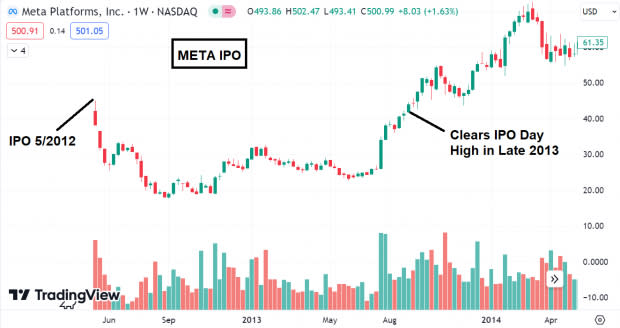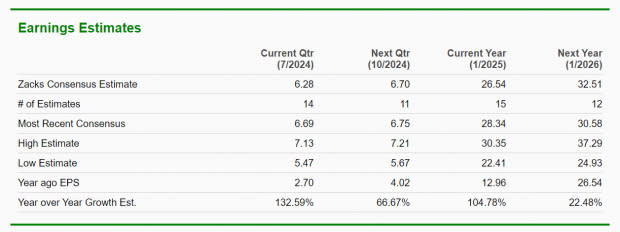How to Trade IPOs: Private vs. Public Investing
Investing in private and public markets are entirely different endeavors, though they share some similarities: innovation, earnings growth and sound management are integral drivers that determine investment performance of both.
Understanding Private Markets vs. Public Markets
Below are five main distinctions between private and public markets that investors must understand, including:
Risk Appetite
Whether you’re investing in private or public companies, each endeavor is risky. However, assuming all else is equal, private firms are far riskier than public firms. Private firms are often earlier in their growth curve (or are just an idea) and do not have to meet the same stringent requirements of a public stock exchange. That said, if successful, the reward for investing in a private firm is far greater because investors in at the ground floor can enjoy the company’s full growth and potentially take advantage of an IPO.
A private investor or VC (venture capitalist) should be considered a home run hitter. While private investors will “strike out” more, they can be successful by hitting home runs and gaining a piece of the next Airbnb (ABNB) or Uber Technologies (UBER) before everyone else.
Liquidity and Holding Period
Because public companies are traded each weekday on a major stock exchange like the S&P 500 Index, they offer far more liquidity. Whether this is an advantage or a disadvantage depends on the eye of the investor. For example, a private investor may be forced to hold for years before they can even think about selling. In other words, if the investment is good, they will be forced to hold and can potentially catch the next multi-bagger (however, this works in both directions). Conversely, a public investor can quickly and easily exit a position they do not feel comfortable in.
Access
Public markets have an overwhelming advantage in terms of access. A public investor only needs to fund an account at a discount broker such as Robinhood (HOOD) to take advantage of fresh IPOs. Conversely, private investors must become “accredited” to invest in less-regulated securities like private firms. Accredited investors must have a certain income. Furthermore, most private companies require a minimum investment, while public investors can invest any amount they wish.
Avoid Common IPO Pitfalls
Like most investments, the individual investor’s personal situation and investing framework will play an important role in which direction to take. Success can be found in both public and private investing but since most investors only have access to public markets, we will break down some common IPO pitfalls to avoid.
1. Insider Selling and Lockup Expiry
Wait for Price Discovery
Buying an IPO on day one is a bad decision for most investors for two reasons: First, it generally takes time for the market to find equilibrium or price discovery. Second, insiders and early investors can use the liquidity event to sell shares. The Meta Platforms (META) (formerly Facebook) IPO was a perfect example. Facebook went public in May 2012. However, shares did not eclipse the IPO high until late 2013.

Image Source: TradingView
Solution: Wait for the lockup expiry (the period insiders must wait before selling shares) to pass, and let the price settle and form a base structure.
2. Slower Growth
In a 2016 interview, Mark Cuban explained the problem with IPOs: “Companies are waiting seven, nine, ten years or longer to go public and by then their hyper-growth is typically gone.” In other words, instead of going public while the company is still growing rapidly, firms wait until growth is slow, and worse, use the IPO as a liquidity event to sell into.
Solution: Look for stocks with a strong Zacks Rank or robust EPS estimates. Zacks Consensus Estimates aggregate earnings estimates from several prominent banks to derive a consensus estimate. Ideally, an IPO should have double-digit or triple-digit EPS growth.

Image Source: Zacks Investment Research
3. Lack of Fundamental Catalysts
Bullish catalysts are necessary for a stock to grow because competition is fierce on Wall Street.
Solution: Find a company with a unique and new bullish catalyst. For example, social media firm Reddit (RDDT), which just went public, benefits from the AI revolution because its platform is optimal for training large language models (LLM) such as ChatGPT.
Bottom Line
Public and private investing each have pros and cons. To be successful in public investing, investors should avoid three common pitfalls.
Want the latest recommendations from Zacks Investment Research? Today, you can download 7 Best Stocks for the Next 30 Days. Click to get this free report
Uber Technologies, Inc. (UBER) : Free Stock Analysis Report
Airbnb, Inc. (ABNB) : Free Stock Analysis Report
Meta Platforms, Inc. (META) : Free Stock Analysis Report
Robinhood Markets, Inc. (HOOD) : Free Stock Analysis Report
Reddit Inc. (RDDT) : Free Stock Analysis Report

